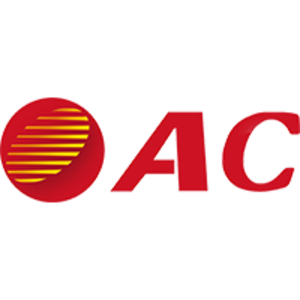LANGUAGE↓

News & Policies

How to exempt social insurance during the epidemic?
Q1: I would like to apply for the periodical social insurance fee reduction policy, do I need to submit any documents?
A1: Enterprises do not need to go through any formalities to provide preferential policies for social insurance premium reduction and exemption. They do not need to provide any materials. They only need to report and pay social insurance premiums in accordance with the original regulations to enjoy them directly.
Q2: Is the corporate social insurance premium reduction unit paid directly or reduced?
A2: Enterprises that meet this stage of social insurance reduction and exemption will enjoy the reduction and exemption policy directly at the time of declaration.
Q3: My company is in Xiamen. In February, my company has declared social insurance premiums, but did not pay. What should I do this month? Do I need to invalidate records?
A3: You do not need to do anything about the social security premiums that have been declared and paid in February. The tax authority will regenerate the payable accounts according to the reduction and exemption policy enjoyed by the unit. You can report directly after checking.
Q4: Social insurance premiums are waived for 5 months. Do we need to apply every month?
A4: For the enjoyment of the deduction and exemption policy, you do not need to make additional application for deduction or exemption, and you do not need to make an application every month. You just need to report the payment base and applicable rate in accordance with the normal procedures.
Q5: We are a large state-owned enterprise and can enjoy the 50% reduction of the basic pension insurance of the enterprise. Even so, due to the epidemic situation, the financial pressure is still large, and we are ready to apply for deferred payment in accordance with regulations. Is the deferred payment limited to the corporate payment?
A5: Your company can not only apply for the deferral of the corporate basic endowment insurance unit’s payment part, but can also apply for the deferral of the personal payment part if it is agreed with the employees.
Q6: How long can the social security premiums of enterprises for retirement, unemployment, and work injury be deferred?
A6: Enterprises affected by the epidemic situation with severe difficulties in production and operation may apply for deferred payment of basic old-age pensions, work-related injuries, and unemployment insurance premiums. The deferred payment period does not exceed 6 months in principle, and there is no late payment fee during the deferred payment period.
Q7: During the period of the new crona pneumonia epidemic, the region where our company is located has implemented a deferred payment policy for medical insurance premiums. Can I still enjoy a 50% reduction policy?
A7: If your company’s region has introduced a policy for reducing employee medical insurance premiums and implementing a deferred payment policy for medical insurance contributions, the reduction and deferred payment policies can be used together.
Q8: Is the refund refunded to our unit payment account? Need to provide tax refund account?
A8: If the local tax, human society, medical insurance and other departments take a direct refund, the overpayment will be automatically refunded to the unit’s original payment account, and you do not need to provide the refund account again. If the refund fails due to account reasons, the relevant departments will contact you in a timely manner, and please also promptly feedback your new refund account.
A1: Enterprises do not need to go through any formalities to provide preferential policies for social insurance premium reduction and exemption. They do not need to provide any materials. They only need to report and pay social insurance premiums in accordance with the original regulations to enjoy them directly.
Q2: Is the corporate social insurance premium reduction unit paid directly or reduced?
A2: Enterprises that meet this stage of social insurance reduction and exemption will enjoy the reduction and exemption policy directly at the time of declaration.
Q3: My company is in Xiamen. In February, my company has declared social insurance premiums, but did not pay. What should I do this month? Do I need to invalidate records?
A3: You do not need to do anything about the social security premiums that have been declared and paid in February. The tax authority will regenerate the payable accounts according to the reduction and exemption policy enjoyed by the unit. You can report directly after checking.
Q4: Social insurance premiums are waived for 5 months. Do we need to apply every month?
A4: For the enjoyment of the deduction and exemption policy, you do not need to make additional application for deduction or exemption, and you do not need to make an application every month. You just need to report the payment base and applicable rate in accordance with the normal procedures.
Q5: We are a large state-owned enterprise and can enjoy the 50% reduction of the basic pension insurance of the enterprise. Even so, due to the epidemic situation, the financial pressure is still large, and we are ready to apply for deferred payment in accordance with regulations. Is the deferred payment limited to the corporate payment?
A5: Your company can not only apply for the deferral of the corporate basic endowment insurance unit’s payment part, but can also apply for the deferral of the personal payment part if it is agreed with the employees.
Q6: How long can the social security premiums of enterprises for retirement, unemployment, and work injury be deferred?
A6: Enterprises affected by the epidemic situation with severe difficulties in production and operation may apply for deferred payment of basic old-age pensions, work-related injuries, and unemployment insurance premiums. The deferred payment period does not exceed 6 months in principle, and there is no late payment fee during the deferred payment period.
Q7: During the period of the new crona pneumonia epidemic, the region where our company is located has implemented a deferred payment policy for medical insurance premiums. Can I still enjoy a 50% reduction policy?
A7: If your company’s region has introduced a policy for reducing employee medical insurance premiums and implementing a deferred payment policy for medical insurance contributions, the reduction and deferred payment policies can be used together.
Q8: Is the refund refunded to our unit payment account? Need to provide tax refund account?
A8: If the local tax, human society, medical insurance and other departments take a direct refund, the overpayment will be automatically refunded to the unit’s original payment account, and you do not need to provide the refund account again. If the refund fails due to account reasons, the relevant departments will contact you in a timely manner, and please also promptly feedback your new refund account.
Q9: Our company has paid the employee medical insurance premiums for February. If half reduction is implemented in February, can we refund the overpaid premiums?
A9: The first thing to do is to determine if your region has implemented a reduction policy for employee health insurance. If the employee medical insurance reduction policy is implemented, the relevant departments will re-approve your payable amount and refund or offset after the reduction amount is accurately determined.
Q10: The national policy is very powerful, and the money already paid in February can be refunded. Is there any procedure required? If I do n’t choose to refund the fee, can I pay the amount due in March?
A10: In order to effectively alleviate the pressure on the company’s funds, the relevant departments will give priority to direct refunds of the fees that have been paid in compliance with the deduction and exemption conditions.
For overpaid enterprise pension, unemployment, and work injury insurance premiums. If you are a small, medium and micro enterprise, local people’s organizations and taxation departments will directly initiate refunds based on local conditions, without you having to submit an application and submit relevant materials. If you are a large enterprise, you will be refunded or offset against future months’ payment according to your choice.
For overpaid employee medical insurance premiums, the local medical insurance and tax authorities will directly initiate a refund based on local actualities, or offset the payment in future months according to your wishes.
Q11: I am a foreign resident, and my child ’s enrollment condition is that parents have to pay social security for three consecutive years at the work place. This time, I will waive the social security fee. Will my personal social security payment be suspended?
A11: This stage of corporate social security premium reduction and exemption only pays part of the unit. The enterprise should still fulfill the obligation of withholding and paying individual contributions in accordance with the law. At the same time, in order to ensure the social security rights and interests of the contributors, the relevant departments have also made clear that the implementation of a policy of reduction or exemption will not affect the contributors’ social insurance rights. Therefore, your payment history will be calculated continuously and your rights will not be affected.
Q12: How do our companies know what type they are classified as?
A12: The localization results of enterprises will be disclosed in accordance with regulations in various places for you to know in time. If you have any objection to the stroke result, you can also submit a change request to the relevant department.
Q13: The company enjoys the exemption from the work injury insurance policy from February to June 2020, and there is no personal payment part for work injury insurance. Is it unnecessary to declare the work injury insurance premium?
A13: Your company still needs to apply for work injury insurance. Although there is no personal payment part for the work injury insurance, the social insurance agency can grasp the details of employees participating in the work injury insurance only if the employer has completed the insurance registration, increase and declaration of payment. Therefore, in order not to affect the enjoyment of employees’ personal benefits, employers must still apply for insurance registration, increase employees, and declare and pay for employees in accordance with the original practice. In compliance with the exemption policy, there is no need to pay for work injury insurance.
Q14: Which engineering construction projects in Wuhan can enjoy the periodical exemption from industrial injury insurance premiums?
A14: During the period from February 1, 2020 to June 30, 2020, newly started construction projects in Wuhan can enjoy periodical exemption from work injury insurance premiums. That is, the construction start-up period in the registered construction contract of which the construction start date is from February 1, 2020 to June 30, 2020 can be exempted from work injury insurance premiums.
Q15: Can flexible employees enjoy periodic deductions for basic old-age insurance and basic medical insurance?
A15: This phase of the social insurance premium reduction policy is aimed at participating entities. Flexible employment personnel are insured in their personal capacity and are not covered by this reduction policy.
Q16: We are a newly established enterprise, do we enjoy this social insurance premium reduction policy?
A16: The newly established enterprise must go through the insurance participation procedures on time and enjoy the relevant reduction and exemption policies in accordance with regulations.
A9: The first thing to do is to determine if your region has implemented a reduction policy for employee health insurance. If the employee medical insurance reduction policy is implemented, the relevant departments will re-approve your payable amount and refund or offset after the reduction amount is accurately determined.
Q10: The national policy is very powerful, and the money already paid in February can be refunded. Is there any procedure required? If I do n’t choose to refund the fee, can I pay the amount due in March?
A10: In order to effectively alleviate the pressure on the company’s funds, the relevant departments will give priority to direct refunds of the fees that have been paid in compliance with the deduction and exemption conditions.
For overpaid enterprise pension, unemployment, and work injury insurance premiums. If you are a small, medium and micro enterprise, local people’s organizations and taxation departments will directly initiate refunds based on local conditions, without you having to submit an application and submit relevant materials. If you are a large enterprise, you will be refunded or offset against future months’ payment according to your choice.
For overpaid employee medical insurance premiums, the local medical insurance and tax authorities will directly initiate a refund based on local actualities, or offset the payment in future months according to your wishes.
Q11: I am a foreign resident, and my child ’s enrollment condition is that parents have to pay social security for three consecutive years at the work place. This time, I will waive the social security fee. Will my personal social security payment be suspended?
A11: This stage of corporate social security premium reduction and exemption only pays part of the unit. The enterprise should still fulfill the obligation of withholding and paying individual contributions in accordance with the law. At the same time, in order to ensure the social security rights and interests of the contributors, the relevant departments have also made clear that the implementation of a policy of reduction or exemption will not affect the contributors’ social insurance rights. Therefore, your payment history will be calculated continuously and your rights will not be affected.
Q12: How do our companies know what type they are classified as?
A12: The localization results of enterprises will be disclosed in accordance with regulations in various places for you to know in time. If you have any objection to the stroke result, you can also submit a change request to the relevant department.
Q13: The company enjoys the exemption from the work injury insurance policy from February to June 2020, and there is no personal payment part for work injury insurance. Is it unnecessary to declare the work injury insurance premium?
A13: Your company still needs to apply for work injury insurance. Although there is no personal payment part for the work injury insurance, the social insurance agency can grasp the details of employees participating in the work injury insurance only if the employer has completed the insurance registration, increase and declaration of payment. Therefore, in order not to affect the enjoyment of employees’ personal benefits, employers must still apply for insurance registration, increase employees, and declare and pay for employees in accordance with the original practice. In compliance with the exemption policy, there is no need to pay for work injury insurance.
Q14: Which engineering construction projects in Wuhan can enjoy the periodical exemption from industrial injury insurance premiums?
A14: During the period from February 1, 2020 to June 30, 2020, newly started construction projects in Wuhan can enjoy periodical exemption from work injury insurance premiums. That is, the construction start-up period in the registered construction contract of which the construction start date is from February 1, 2020 to June 30, 2020 can be exempted from work injury insurance premiums.
Q15: Can flexible employees enjoy periodic deductions for basic old-age insurance and basic medical insurance?
A15: This phase of the social insurance premium reduction policy is aimed at participating entities. Flexible employment personnel are insured in their personal capacity and are not covered by this reduction policy.
Q16: We are a newly established enterprise, do we enjoy this social insurance premium reduction policy?
A16: The newly established enterprise must go through the insurance participation procedures on time and enjoy the relevant reduction and exemption policies in accordance with regulations.





